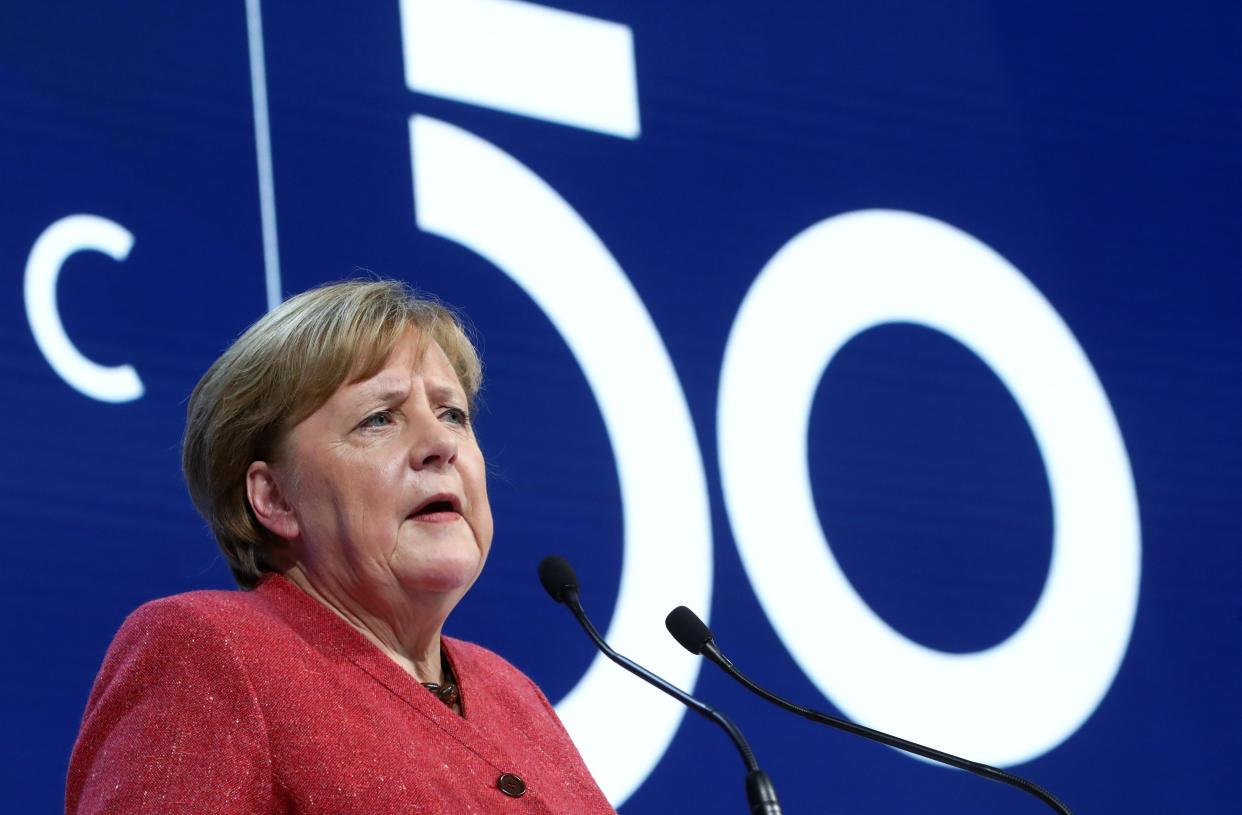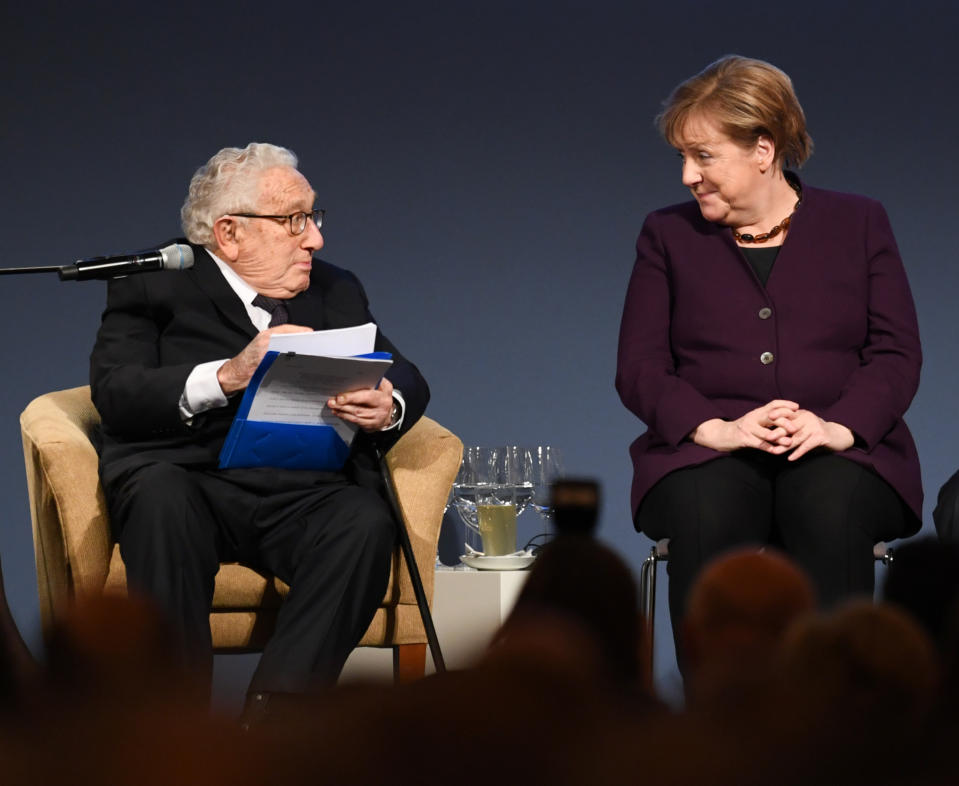Our survival hinges on achieving Paris climate goals, Merkel tells Davos leaders

German chancellor Angela Merkel told delegates at the World Economic Forum, in Davos on Thursday, that climate change was indisputably real— but so were the conflicting emotions surrounding the subject, and they need to be acknowledged.
Merkel’s speech, at her 12th visit at Davos, checked off a list of the world’s biggest challenges —from the conflict in Libya, to the crumbling Iran Nuclear Deal. The German chancellor said that Europe, and Germany, was firmly standing for multilateralism.
While she lauded the European Union’s goal of being climate neutral by 2050, Merkel warned that if countries do not take speedier action then the Paris Agreement goal of keeping global warming to below 1.5 degrees would not be achievable. "The question of achieving the goals of the Paris Agreement could be a question of survival,” she warned.
“These are transformative processes of a historic nature … It means the whole way we do business, the way we live, what we’ve grown accustomed to will have to change,” Merkel said. “The global community has to act together.” She noted that “unfortunately not everyone is with us with this.”
Donald Trump labelled those warning about the dangers of climate change as “prophets of doom” during his Davos speech this week.
Even in a country as relatively peaceful as Germany there is real tension, she said, between rural and urban citizens and between those who want to take action, and those who do not believe climate change is a real, urgent threat.
“It’s not a matter of belief, there is very clear evidence from scientific data that climate change is happening,” she said. But the chancellor believes that people’s unwillingness to discuss the issue with people who don’t share our views is a very serious problem.
“The fact that people seem to no longer wish to talk to one another means there is no longer the possibility of building a bridge,” she said, adding that this is a big concern, and people need to come out of their digital bubbles and talk to one another.
“The impatience of our young people is something we need to tap, they are looking at a horizon beyond 2050,” she added.
Merkel, 65, has led Germany for 15 years now, and is still its most popular politician. A January poll by broadcaster ARD found the chancellor’s approval rating had climbed to 53%, a six-point jump from December, and most people want her to remain until the end of her term in 2021.

Although Merkel and Trump have had a frosty relationship since he took office, the chancellor was awarded the Henry A Kissinger prize for her services to the transatlantic relationship by the American Academy in Berlin this week. In her speech, she encouraged Western powers not to freeze China out of the global multilateral system, but to treat it as an equal.
READ MORE: Forbes crowns Angela Merkel as world's most powerful woman for ninth year running
The US has demanded that the German government block Chinese telecoms giant Huawei from building the country’s 5G network, over what Washington says are big security concerns that Beijing could compel Huawei to share its data.
So far, Berlin has refused to ban Huawei — not least because of threats from China of repercussions on German carmakers selling in China — but pressure is growing inside Merkel’s Christian Democrats however to exclude Huawei.


